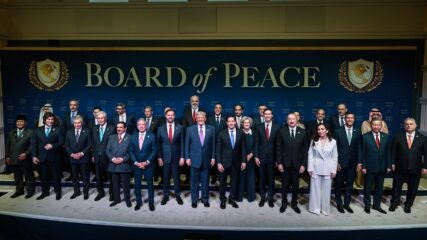December 31, 1973
The election for the eighth Knesset was originally scheduled to be held October 30, 1973. On October 6, 1973, war broke out when Israel was attacked by Egypt and Syria. The war caused Israeli political leaders to consider postponing the election. On October 8, all parties running in the election agreed to suspend campaigning to present a unified political front during the war. On October 25, the Knesset voted to move the election to December 31. As a result of the postponement, the Knesset also decided that the eighth Knesset would serve two months less than a full four-year term in order for the 1977 elections to be held at the end of October.
Two issues dominated when campaigning resumed December 8: the economy and terrorism. Israeli’s economy had grown tremendously after its victory in June 1967 Six-Day War. That growth and a series of labor strikes led to large wage increases in many sectors of the economy. Wage increases and the higher demand for capital caused surging inflation, leading to economic instability. Even before Israel was caught by surprise on October 6, terrorism had been on a steady rise since 1970, with several highly publicized attacks, including the massacre of 11 Israelis at the Munich Olympics in September 1972. Defense Minister Moshe Dayan had even threatened to leave the Alignment if a West Bank state were established because he felt it would become dominated by the various terrorist groups that threatened Israel.
Despite the shaken confidence in the Alignment by the Israeli public as a result of these issues and the unpreparedness of the country in the early moments in the war, the Alignment remains the largest party in the eighth Knesset, receiving 39.6% of the vote. Re-elected Prime Minister Golda Meir, suffering from cancer at the time of the election, winds up resigning April 10, 1974, over public backlash from the war, to be succeeded by Yitzhak Rabin. In the subsequent election May 17, 1977, Likud supplants the Alignment as the leading party in the Knesset, and Menachem Begin becomes prime minister.










